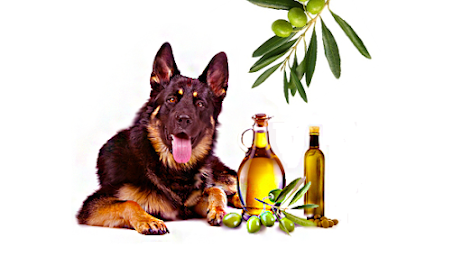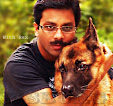Fat is a four legged issue
Recent research* shows that 50% of domestic dogs are now overweight in the US and the UK and with obesity being the single biggest cause of health problems in dogs, UK based pet insurance company Bought By Many recently challenged a group of German Shepherd dog owners to reveal all about their pets’ diet and exercise habits in an attempt to answer the question:
‘Are we killing our dogs with kindness (and cake?)’
Any proud pet owner would say they would go to whatever lengths they could to look after their pet and in recent years the health and well-being of our pets has become a booming business with dog walkers, dog groomers, and dog psychologists all becoming a growing breed.
Despite this, we are hearing more and more about the growing problem of dog obesity with a recent study showing dogs as heavy as 9 stones in weight (126 lb or 57 kilos), similar to a fully grown female human.**
No dog lover wants to think that they may be the cause of ill health in their dog but we all know how easy it is to be in denial... the plump person who swears it’s caused by their ‘glands’; the dieter who secretly scoffs a packet of crisps in the car; the couch potato who never gets round to that much-needed jog.... is our love for our dogs meaning that we are pampering them too much, letting them fall into bad habits just like us humans and ignoring the health dangers?
The good news is that the survey showed that ‘diet and exercise’ were almost universally recognised by the German Shepherd dog owners questioned as the most important factors in the health and well-being of our pets – and indeed they are!
Unfortunately though, when it comes to putting theory into practise, we don’t always live up to our own ideals – in fact quite often, our bark is stronger than our bite...
80% of German Shepherd dog owners questioned pride themselves in putting a lot of effort into getting the right diet & exercise for their pet, yet despite that 38% said that the single biggest improvement they could make to their dog’s health was more exercise or cutting down ‘bad’ foods. And when it comes to food it seems we may be in danger of turning our pets into plump pooches! 30% of owners admitted to feeding their dog more than the recommended twice a day with 7% stuffing food down their dogs’ mouths 4 or more times a day.
We all have good intentions. The main diet staples are prepared dog food and fresh meat and fish, but our love for our dogs means that 15% of dogs gorge on leftovers from the family meal every day on top of their normal meals and a whopping 40% do this at least once a week. What’s more, our dogs are becoming comfort eaters. Treats figure highly on the menu, with 54% of those surveyed having tucked in to the British favourite roast dinner in the last month while an amazing 9% were treated to the famous British dish fish and chips!
Of course, as long as your dog is getting plenty of exercise then maybe they deserve those treats, right? Well, yes but unfortunately we don’t always walk the walk when it comes to exercise. A quarter of respondents admit to walking their dog for only 30 minutes or less a day and despite this lack of exercise nearly three quarters would never employ a dog walker.
So rather than being famous as a nation of dog lovers is the UK actually a nation of dog feeders? Is it inevitable that our pets, like so many humans in the western world, are set to expand their waistlines?
The good news for the German Shepherd dog owners surveyed is that only 11% of their dogs are currently showing signs of being overweight and indeed studies have shown that luckily German Shepherd dogs are less naturally susceptible to obesity than other breeds such as Labradors and Cocker Spaniels. However, with 25% of pets in the survey having suffered from joint problems and insufficient diet and exercise for a significant proportion of dogs, the time bomb could be ticking and we could be storing up health problems for the future.
Our dogs’ metabolic rate drops as they age with neutering being another significant cause of lower calorific needs. In fact if a dog is neutered or older it may need as many as 20% fewer calories per day. So if it is still eating the same portion sizes as it did as a puppy then you can be sure that excess weight will follow.
Vets recommend a simple fat test – reminiscent of the ‘can you pinch an inch?’ UK TV campaign of the eighties. Simply feel for your dog’s ribs – they should be easily visible. If they are not and you need to prod harder, your dog is carrying excess fat.
Cuddly of course can be cute and nobody wants to deprive their beloved pet but it’s worth remembering that obesity is the number one nutritional disease affecting pets today. Its relation to arthritis, cardiovascular disease, diabetes, and decreased life span make it a serious medical condition.
With rising obesity and vet fees having doubled on average over the last 10years, regular health checks are a must. With 9% of respondents admitting their dog would benefit from more regular health checks and 40% saying they do not have pet insurance, this may be another reason why obesity issues are not being spotted earlier.
Studies have shown that most dogs need pet insurance in the first 3 years of their lives, yet most owners don’t take pet insurance out until after that, incurring extra cost by paying for vet fees that they could have been insured against. With 96% of people expecting vet fees to increase further, there has never been a better time to take out pet insurance.
The good news for German Shepherd dog owners is that a few small changes will go a long way – investing in the right amount of good quality food, ditching the fish and chips, making time or allocating money to dog walkers for proper exercise and making sure you have insurance in place for regular health checks are the main things you need.
Studies have also shown that a dog owner's lifestyle and own body condition have a significant impact on those of their pets too, so the message is clear – we all can benefit from an exercise and diet buddy, so team up with your number 1 best friend and get in shape today.
Author Biography
This researched article has been contributed by the UK's top pet insurance company.
Bought by Many is a UK based independent who bring groups of people with similar insurance needs together and uses their collective buying power to get them better deals. They have over 35,000 members who on average benefit from a discount of 18% on insurance deals. They are able to negotiate excellent deals on pet insurance for German Shepherd Dog owners and as their members grow, their deals get better and better. To find out more & join today, just click on the links above.
Additional Notes
*Sources: Association for Pet Obesity Prevention 2008 states 44% of dogs overweight; Liverpool University study shows an increase from 35% to 50% in UK in last 4 years (i.e. 4m dogs). Higher than France (39%) or Australia (31%)
**Source: UK Sunday Times 17/8/2014.
Read more...





























